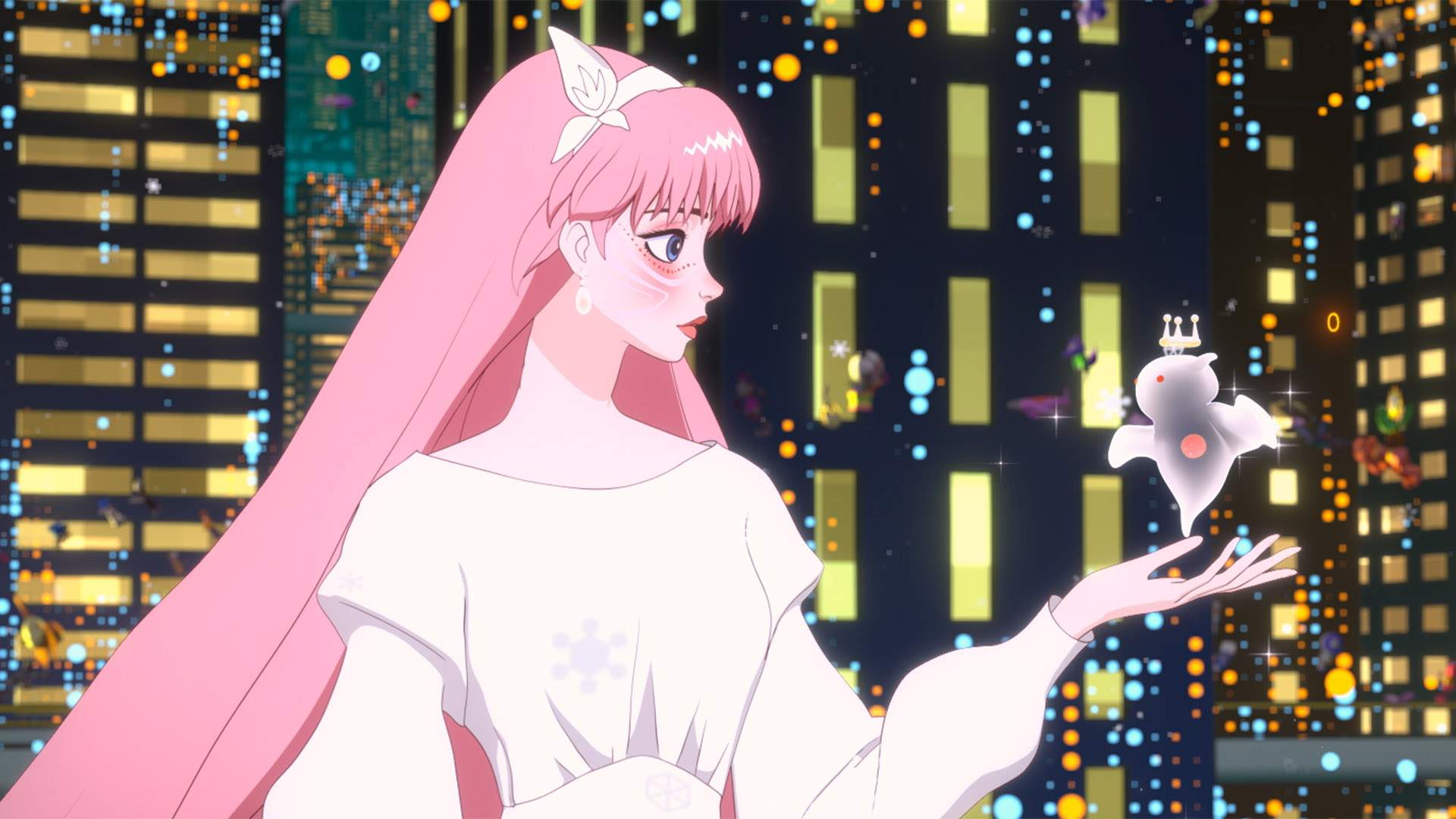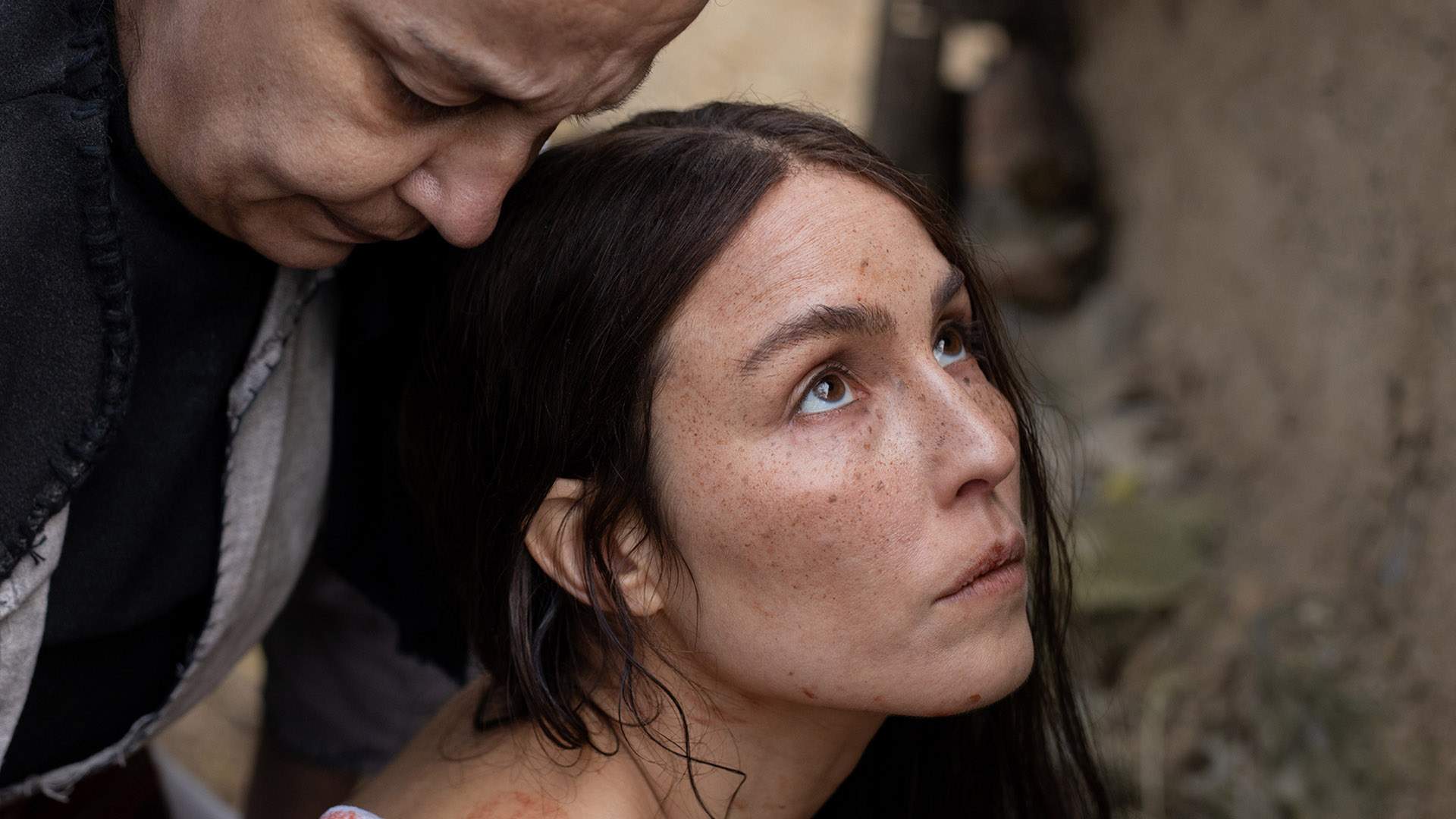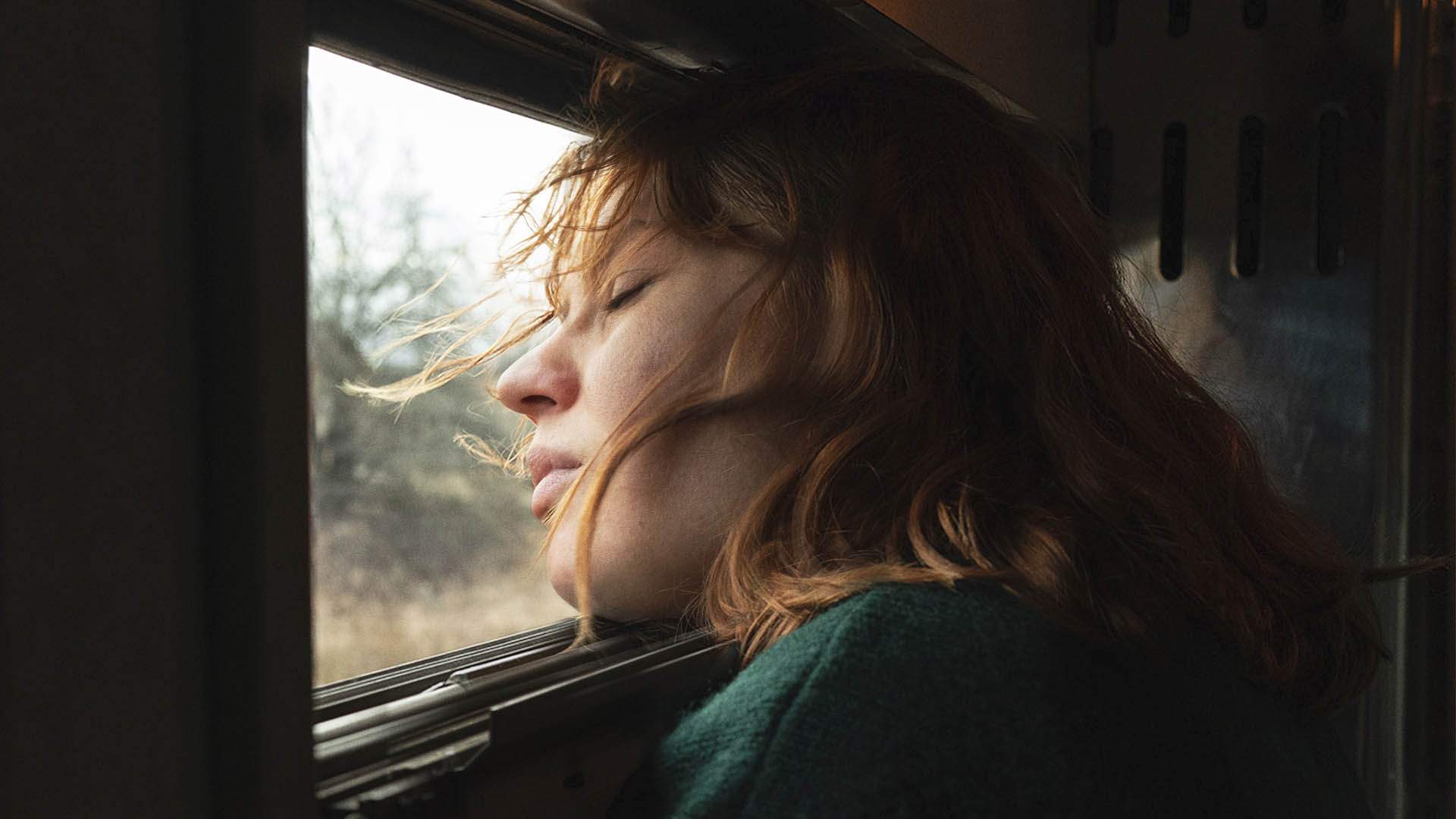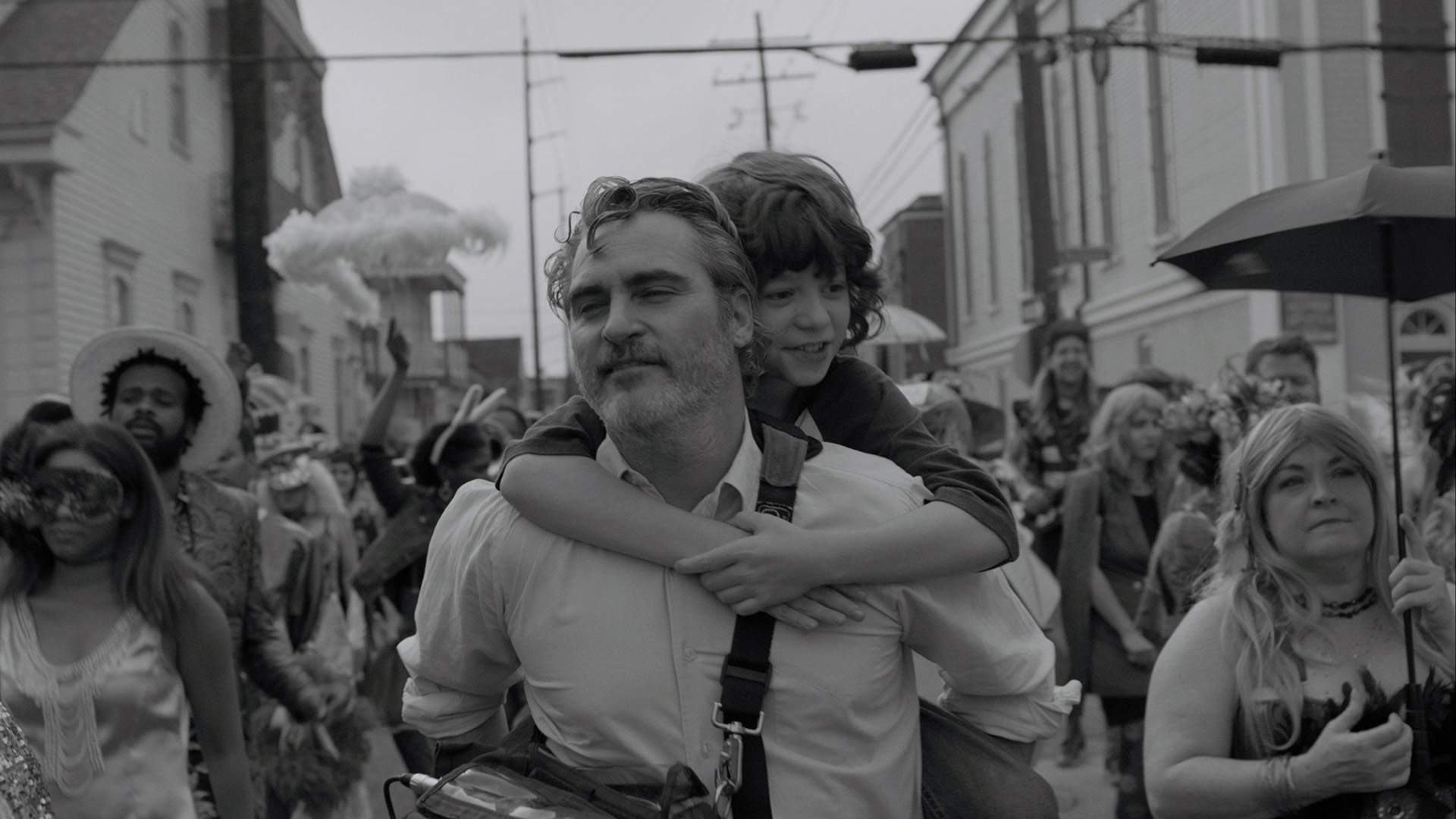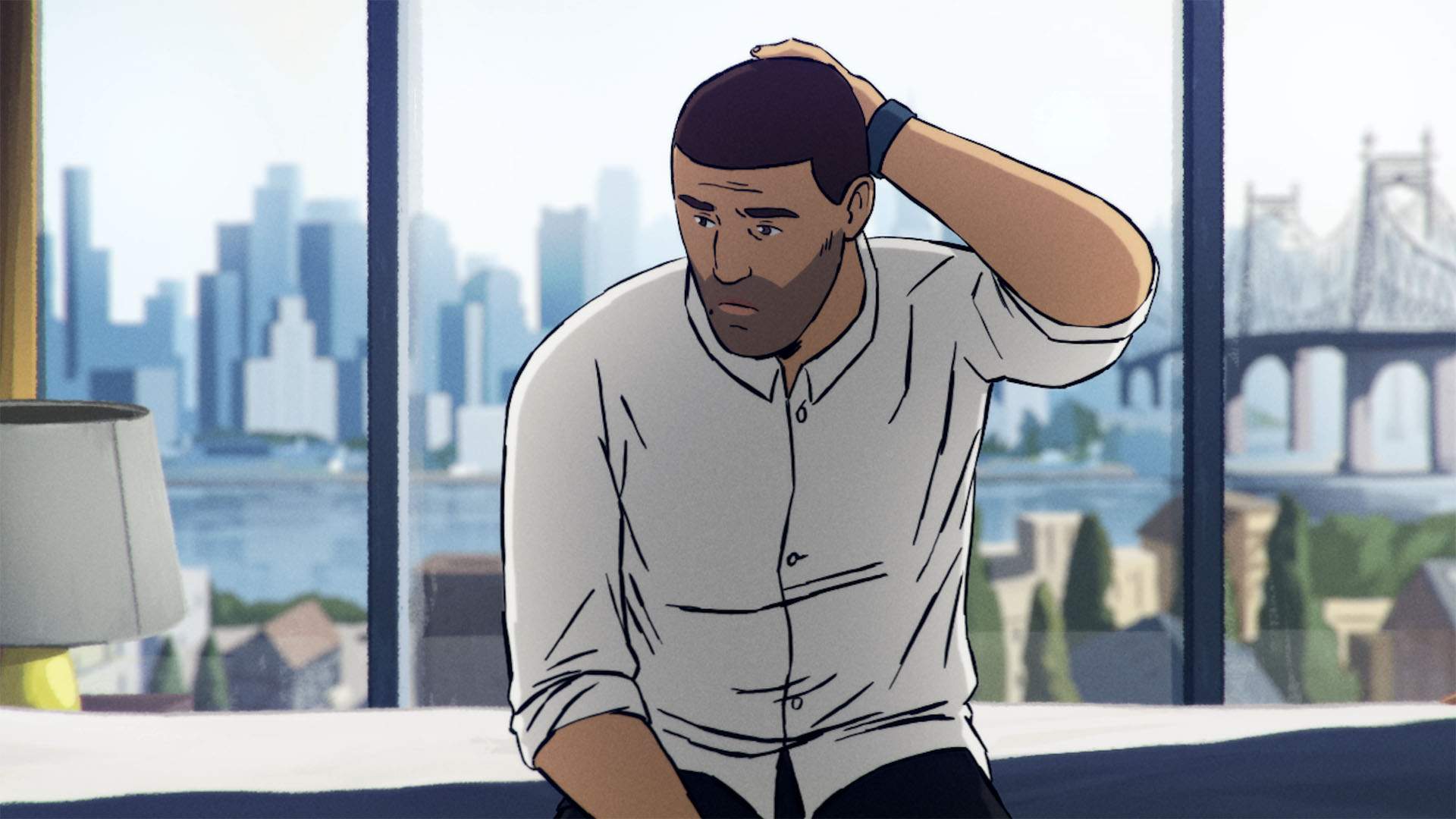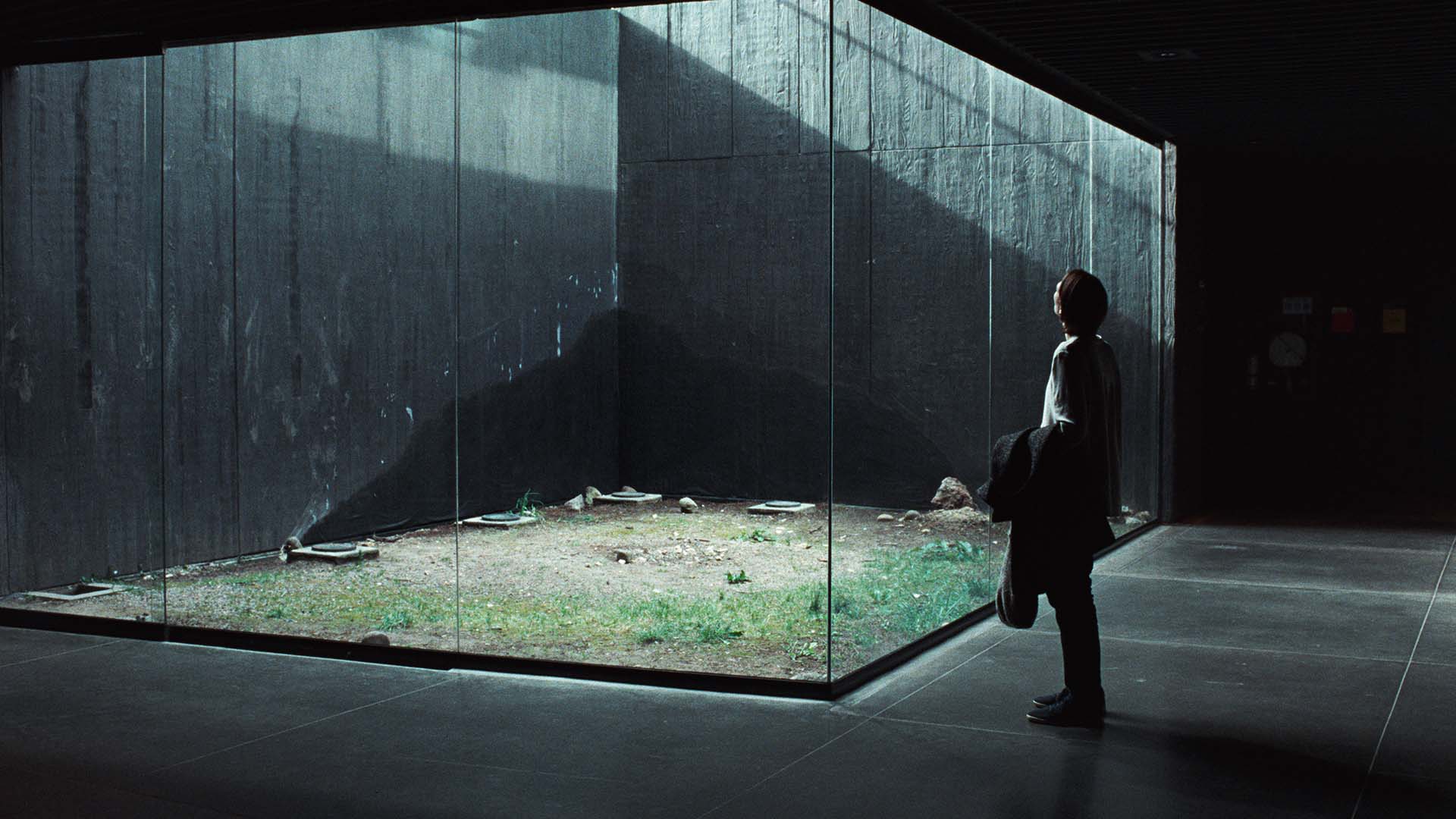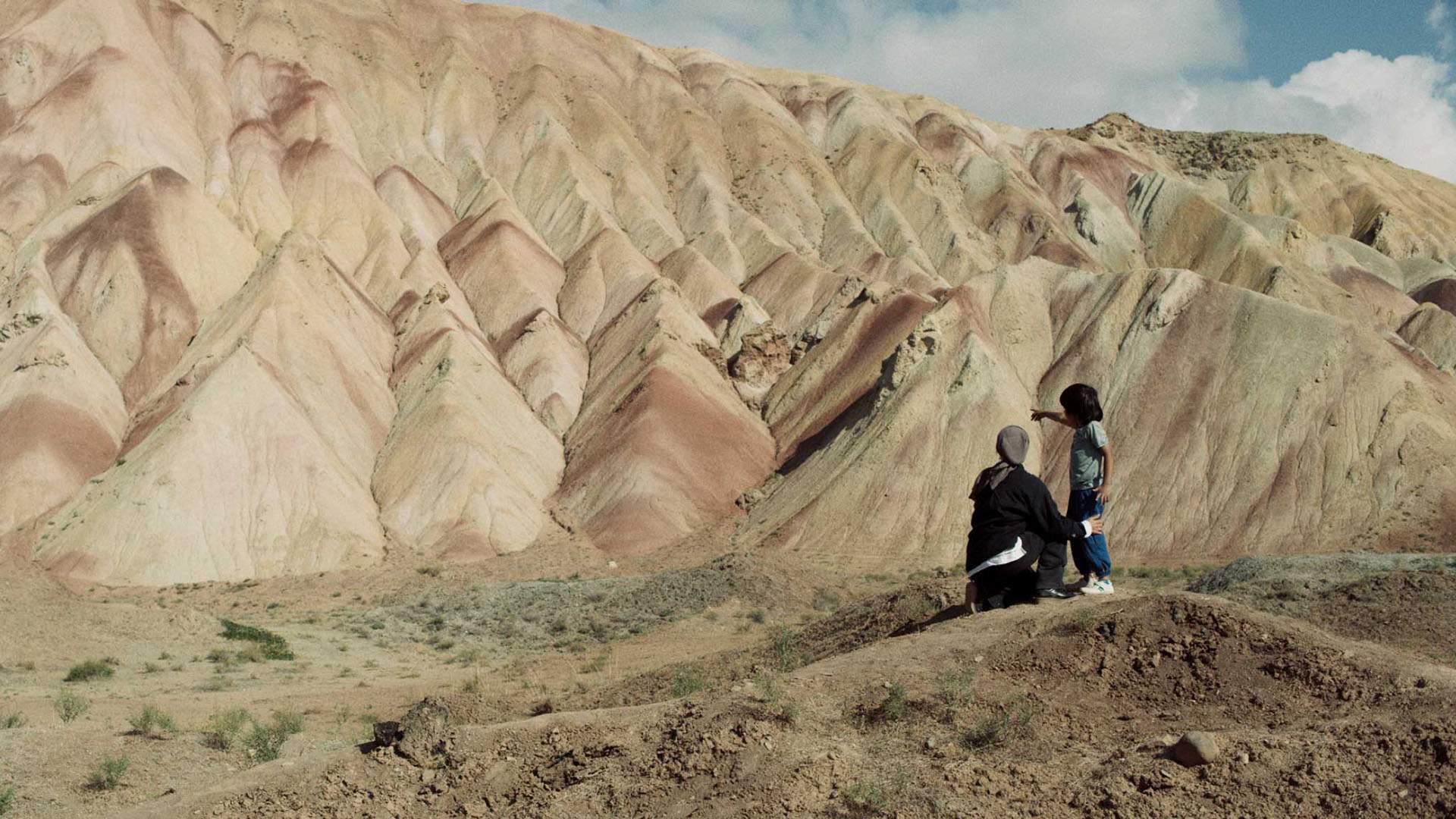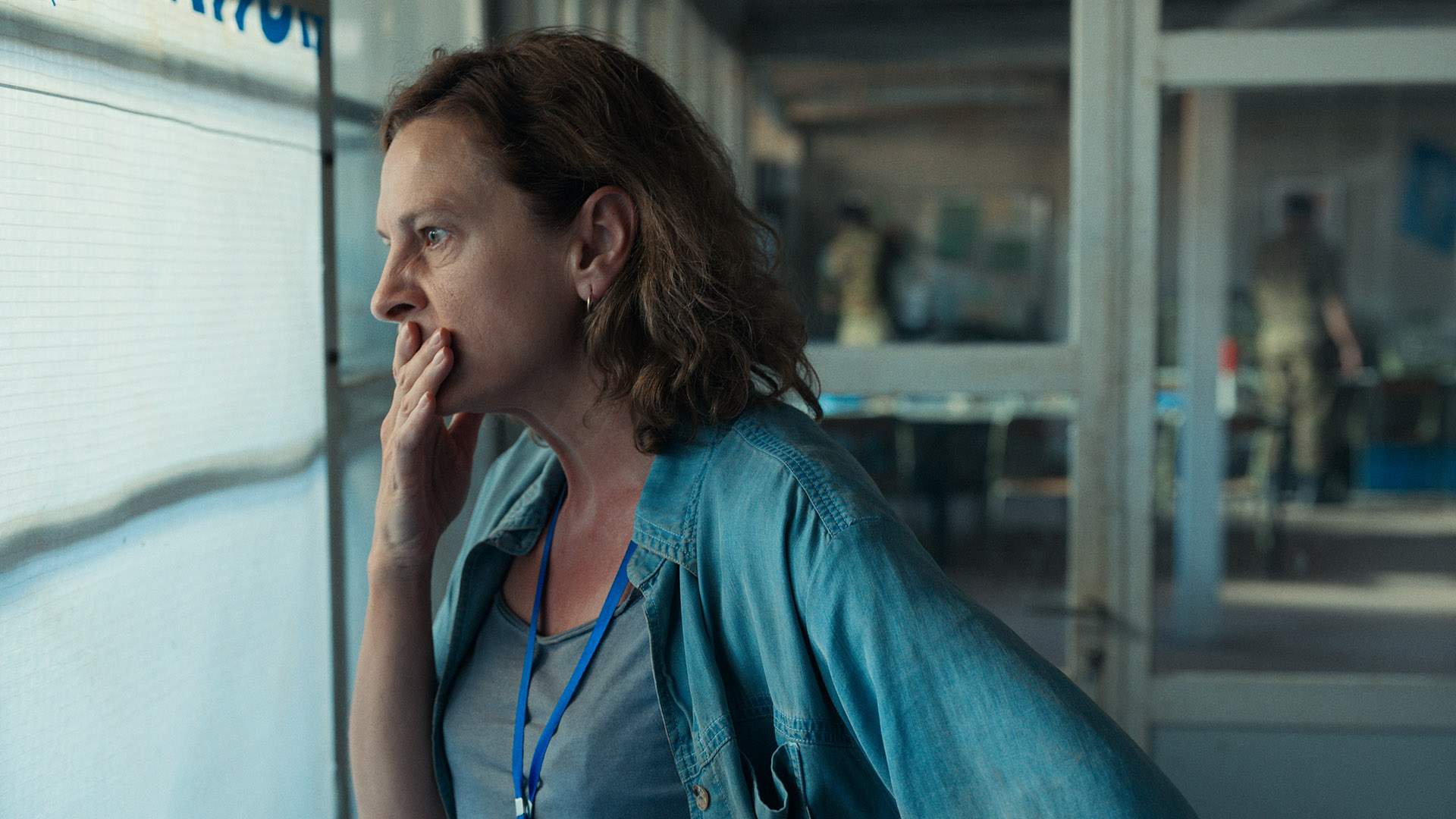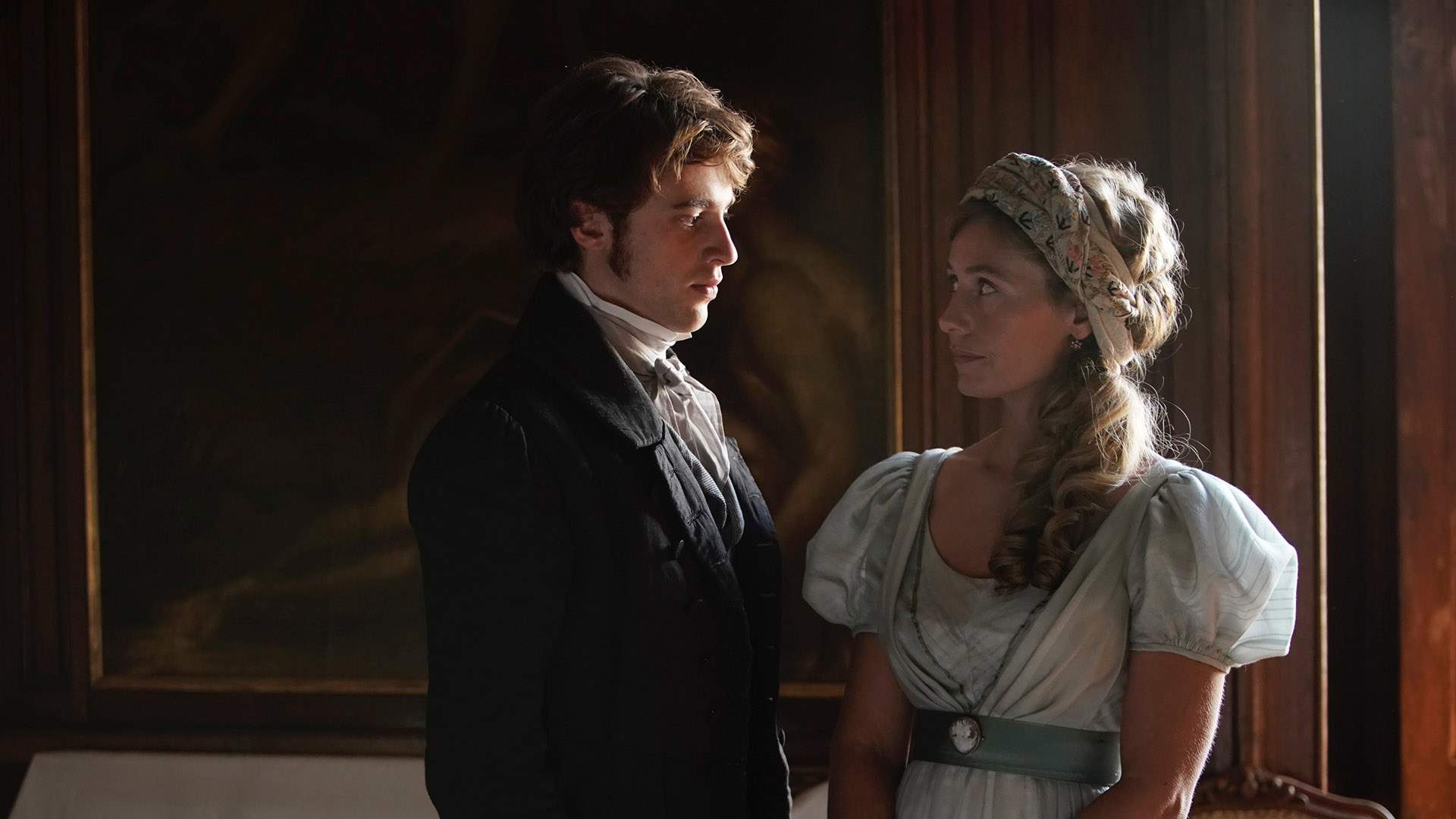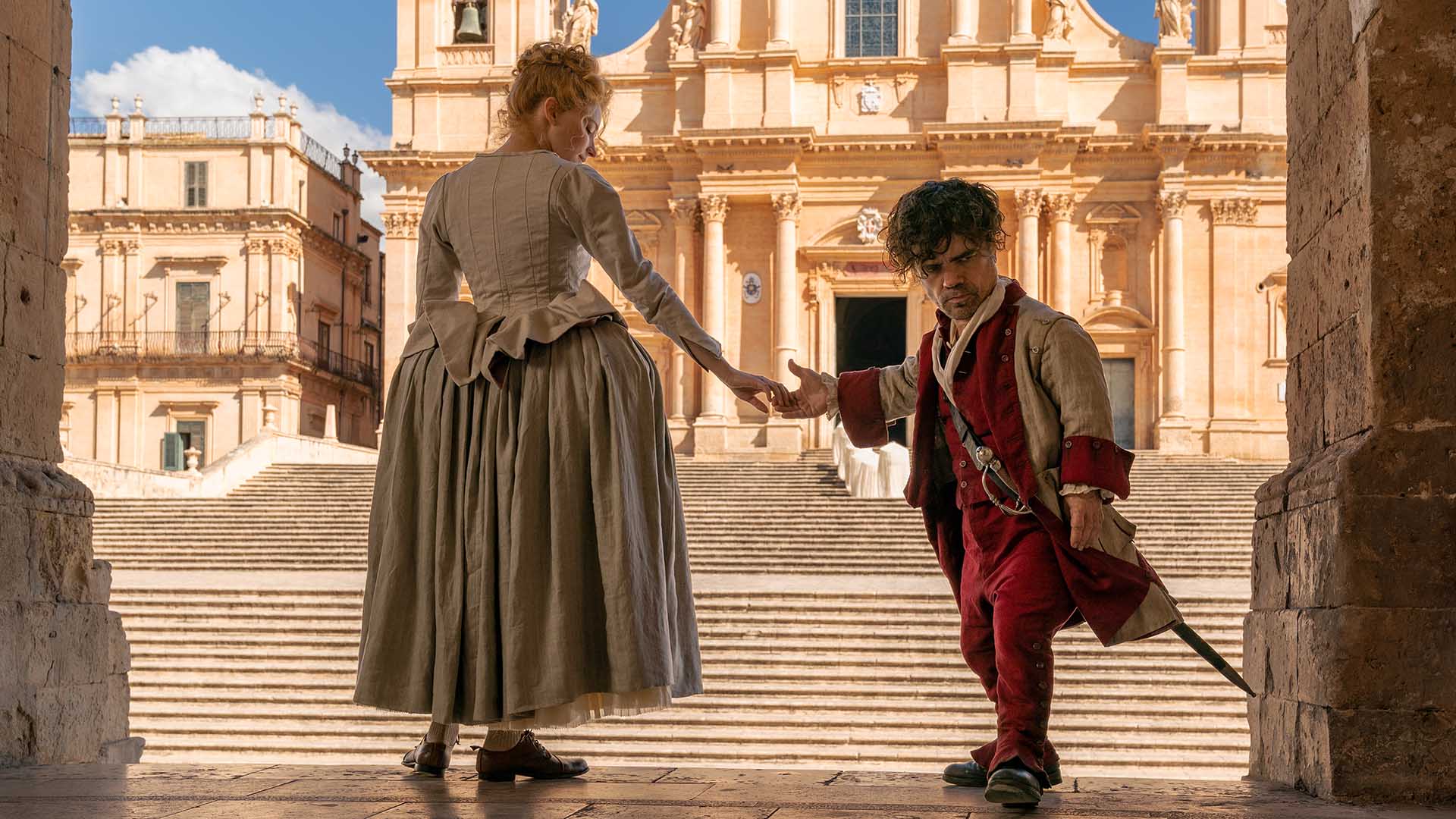The 15 Best Movies Hardly Anyone Saw in 2022
This year's underappreciated gems span Japanese animated takes on 'Beauty and the Beast', Australian stunners and Tilda Swinton searching for a mysterious sound.
In 2022, Australian movie lovers felt a need for speed. The nation's cinemagoers flocked to see yellow-hued offsiders spouting gibberish, too, plus oh-so-many superheroes. We also adored rock 'n' roll icons, wizarding backstories and rampaging dinosaurs. Yes, Top Gun: Maverick, Minions: The Rise of Gru, Thor: Love and Thunder, The Batman and Doctor Strange in the Multiverse of Madness all sit atop of the Aussie box office for the year at the time of writing, followed by Jurassic World Dominion, Elvis, Black Panther: Wakanda Forever, Spider-Man: No Way Home and Fantastic Beasts: The Secrets of Dumbledore.
Your memory isn't failing you: Spider-Man: No Way Home did first hit screens in 2021, and was the top-grossing movie in Australia in 2021. It proved such a box-office smash, though, that it's one of 2022's best money-earners as well. Expect Avatar: The Way of Water to do something similar this year — it's already storming up the list. Indeed, expect it to crack the top ten easily by the time that New Year's Eve hits.
So, they're the massive flicks that everyone saw over the past 12 months, with the literal receipts to prove it. If you only went to the pictures to see huge titles, however, you missed an array of other delights that are well and truly worth your time and attention. As we do every year — and have since 2014 (see also: 2015, 2016, 2017, 2018, 2019, 2020 and 2021) — we've rounded up a list of top-notch films that released in Aussie cinemas in 2022 but didn't rack up fat stacks of cinema takings. Here are our 15 picks that you need to catch up on ASAP.

BLAZE
In the name of its protagonist, and the pain and fury that threatens to parch her 12-year-old existence, Del Kathryn Barton's first feature scorches and sears. It burns in its own moniker, too, and in the blistering alarm it sounds against an appalling status quo: that experiencing, witnessing and living with the aftermath of violence against women is all too common, heartbreakingly so, including in Australia where one woman a week on average is killed by her current or former partner. Blaze has a perfect title, with the two-time Archibald Prize-winning artist behind it crafting a movie that's alight with anger, that flares with sorrow, and that's so astutely and empathetically observed, styled and acted that it chars. Indeed, it's frequently hard to pick which aspect of the film singes more: the story about surviving what should be unknown horrors for a girl who isn't even yet a teen, the wondrously tactile and immersive way in which Blaze brings its namesake's inner world to the screen, or the stunning performance by young actor Julia Savage (Mr Inbetween) in its central part.
There are imagined dragons in Blaze, but Game of Thrones or House of the Dragon, this isn't — although Jake (Josh Lawson, Mortal Kombat), who Blaze spots in an alleyway with Hannah (Yael Stone, Blacklight), has his lawyer (Heather Mitchell, Bosch & Rockit) claim that his accuser knows nothing. With the attack occurring mere minutes into the movie, Barton dedicates the feature's bulk to how her lead character copes, or doesn't. Being questioned about what she saw in court is just one way that the world tries to reduce her to ashes, but the embers of her hurt and determination don't and won't die. Blaze's father Luke (Simon Baker, High Ground), a single parent, understandably worries about the impact of everything blasting his daughter's way. As she retreats then acts out, cycling between both and bobbing in-between, those fears are well-founded. Blaze is a coming-age-film — a robbing-of-innocence movie as well — but it's also a firm message that there's no easy or ideal response to something as awful as its titular figure observes.
Blaze is available to stream via Google Play, YouTube Movies, iTunes and Prime Video. Read our full review.

YOU WON'T BE ALONE
Sometimes, a comparison is so obvious that it simply has to be uttered and acknowledged. That's the case with You Won't Be Alone, the first feature from Macedonian Australian writer/director Goran Stolevski, who also helmed MIFF's 2022 opening-night pick Of an Age. His debut film's lyrical visuals, especially of nature, instantly bringing the famously poetic aesthetics favoured by Terrence Malick (The Tree of Life, A Hidden Life) to mind. Its musings on the nature of life, and human nature as well, easily do the same. Set centuries back, lingering in villages wracked by superstition and exploring a myth about a witch, You Won't Be Alone conjures up thoughts of Robert Eggers' The Witch as well. Indeed, if Malick had directed that recent favourite, the end product might've come close to this entrancing effort. Consider Stolevski's feature the result of dreams conjured up with those two touchstones in his head, though, rather than an imitator.
The place: Macedonia. The time: the 19th century. The focus: a baby chosen by the Wolf-Eateress (Anamaria Marinca, The Old Guard) to be her offsider. The feared figure has the ability to select and transform one protege, but she agrees to let her pick reach the age of 16 first. Nevena (Sara Klimoska, Black Sun) lives those formative years in a cave, in an attempt to stave off her fate. When the Wolf-Eateress comes calling, her initiation into the world — the world of humans, and of her physically and emotionally scarred mentor — is jarring. With Noomi Rapace (Lamb), Alice Englert (The Power of the Dog) and Carloto Cotta (The Tsugua Diaries) also among the cast, You Won't Be Alone turns Nevena's experiences of life, love, loss, desire, pain, envy and power into a haunting and thoughtful gothic horror fable. To say that it's bewitching is obvious, too, but also accurate.
You Won't Be Alone is available to stream via Google Play, YouTube Movies and iTunes. Read our full review.

FULL TIME
At the 2021 Venice International Film Festival, French actor Laure Calamy won the Best Actress award in the event's Horizons strand — and mere minutes into Full Time, it's easy to see why. The Antoinette in the Cévennes and Call My Agent! star is phenomenal in this portrait of a single mother's hectic routine, with writer/director Eric Gravel (Crash Test Aglaé) charting the ups and downs of his protagonist's professional and personal situation like he's making a thriller. In fact, he is. Julie Roy, the feature's focus, is stretched to breaking point, and every moment of every day seems to bring a new source of stress. For starters, her job overseeing the cleaning at a five-star Parisian hotel is both chaotic and constantly throwing up challenges, she's put all her hopes on a new gig in market research but getting time off for the interview is easier said than done, and the French capital is in the middle of a transport strike that makes commuting in and out from the outskirts basically impossible.
Also adding to Julie's troubles: the childcare arrangement she has in place with a neighbour, having any energy to spend meaningful time with her children at the end of her busy days, trying to get financial support out of her absent ex and planning a birthday party. All of this might sound mundane, and like the kind of thing that plenty of people deal with every day — and that's partly the point. Full Time hones in on the rush, hustle and bustle to show how fraught this vision of normality is. Every shot by cinematographer Victor Seguin (Gagarine) ripples with tension, and the rhythm amplified by editor Mathilde Van de Moortel (Mustang) is nothing short of relentless. Gravel truly sees Julie, her stresses and the fact that she's at her wits' end, and the marvellous Calamy plays the part like she's living it.
Full Time is available to stream via Google Play, YouTube Movies, iTunes and Prime Video. Read our full review.

WHEEL OF FORTUNE AND FANTASY
One of two films by Japanese filmmaker Ryûsuke Hamaguchi that hit Australian cinemas this year — the other, Drive My Car, was an Oscar hit — Wheel of Fortune and Fantasy gives three tales about romance, desire and fate a spin. These three stories all muse on chance, choice, identity and echoes as well, and focus on complex women reacting to the vagaries of life and everyday relationships. Coincidence plays a role in each of the trio, too, and commonalities ebb and flow between each dialogue-heavy narrative. In other words, this is a smart, astute and savvily layered triptych from the director behind Happy Hour and Asako I and II, as brought to the screen with excellent performances, a canny knack for domestic drama and piercing long shots in each and ever chapter.
In the first part, model Meiko (Kotone Furukawa, 21st Century Girl) discovers that her best friend Tsugumi (Hyunri, Wife of a Spy) has just started seeing her ex-boyfriend Kazuaki (Ayumu Nakajima, Saturday Fiction), and grapples with her complicated feelings while pondering what could eventuate. Next, college student Nao (Katsuki Mori, Sea Opening) is enlisted to seduce Professor Sagawa (Kiyohiko Shibukawa, Tezuka's Barbara) as part of a revenge plan by her lover Sasaki (Shouma Kai, Signal 100). Finally, in a world where the internet has been eradicated due to a virus, Natsuko (Fusako Urabe, Voices in the Wind) and Nana (Aoba Kawai, Marriage with a Large Age Gap) cross paths — thinking that they went to school together decades ago.
Wheel of Fortune and Fantasy isn't currently available to stream. Read our full review.

COMPARTMENT NO. 6
Handheld camerawork can be a gimmick. It can be distracting, too. When imagery seems restless for no particular reason other than making the audience restless, it drags down entire films. But at its best, roving, jittery and jumpy frames provide one of the clearest windows there is into the souls that inhabit the silver screen in 90-minute blocks or so, and also prove a wonderful way of conveying how they feel in the world. That's how Compartment No. 6's cinematography plays, and it couldn't be a more crucial move; this is a deeply thoughtful movie about two people who are genuinely restless themselves, after all. Finnish director Juho Kuosmanen (The Happiest Day in the Life of Olli Mäki) wants what all of the most perceptive filmmakers do — to ensure his viewers feel like they know his characters as well as they know themselves — and in his latest cinematic delight, he knows how to get it.
How Kuosmanen evokes that sense of intimacy and understanding visually is just one of Compartment No. 6's highlights, but it's worthy of a train full of praise. With the helmer's returning director of photography Jani-Petteri Passi behind the lens, the film gets close to Finnish student Laura (Seidi Haarla, Force of Habit) and Russian miner Ljoha (Yuriy Borisov, The Red Ghost). It peers intently but unobtrusively their way, like an attentive lifelong friend. It jostles gently with the locomotive that the movie's central pair meets on, and where they spend the bulk of their time together. It ebbs and flows like it's breathing with them. It rarely ventures far from their faces in such cramped, stark, 90s-era Russian surroundings, lingering with them, carefully observing them, and genuinely spying how they react and cope in big and small moments alike. Pivotally — and at every moment as well — this Before Sunrise-esque gem truly pays attention to, appreciates and understands its key duo.
Compartment No. 6 isn't currently available to stream. Read our full review.

C'MON C'MON
The last time that Joaquin Phoenix appeared in cinemas before 2022, he played an overlooked and unheard man. "You don't listen, do you?" Arthur Fleck asked his social worker, and the entirety of Joker — and of Phoenix's magnetic Oscar-winning performance as the Batman foe in the 2019 film, too — provided the obvious answer. Returning to screens in a feature that couldn't be more different to his last, Phoenix now plays a professional listener. A radio journalist and podcaster who'd slide in seamlessly alongside Ira Glass on America's NPR, Johnny's niche is chatting with children. Travelling around the country from his New York base, C'mon C'mon's protagonist seeks thoughts about life, hopes, dreams, the future and the world in general, but never in a Kids Say the Darndest Things-type fashion. As Phoenix's sensitive, pensive gaze conveys under the tender guidance of Beginners and 20th Century Women filmmaker Mike Mills, Johnny truly and gratefully hears what his young interviewees utter.
Phoenix is all gentle care, quiet understanding and rippling melancholy as Johnny. All naturalism and attentiveness as well, he's also firmly at his best, no matter what's inscribed on his Academy Award. Here, Phoenix is as phenomenal as he was in his career highlight to-date, aka the exceptional You Were Never Really Here, in a part that again has his character pushed out of his comfort zone by a child. C'mon C'mon's Johnny spends his days talking with kids, but that doesn't mean he's equipped to look after his nine-year-old nephew Jesse (Woody Norman, The War of the Worlds) in Los Angeles when his sister Viv (Gaby Hoffmann, Transparent) needs to assist her husband Paul (Scoot McNairy, A Quiet Place Part II) with his mental health. Johnny and Viv haven't spoken since their mother died a year earlier, and Johnny has previously overstepped when it comes to Paul — with the siblings' relationship so precarious that he barely knows Jesse — but volunteering to help is his immediate reflex.
C'mon C'mon is available to stream via Binge, Paramount+, Google Play, YouTube Movies, iTunes and Prime Video. Read our full review.

FLEE
When Flee won the World Cinema Documentary Grand Jury Prize at the 2021 Sundance Film Festival, it collected its first accolade. The wrenchingly affecting animated documentary hasn't stopped notching up deserving acclaim since. A spate of other gongs have come its way, in fact, including a history-making trifecta of nominations for Best International Feature, Best Documentary and Best Animated Feature at this year's Oscars, becoming the first picture to ever earn nods in all three categories at once. Gleaning why this moving and compassionate movie keeps garnering awards and attention isn't difficult. Pairing animation with factual storytelling is still rare enough that it stands out, but that blend alone isn't what makes Flee special. Writer/director Jonas Poher Rasmussen (What He Did) has created one of the best instances of the combination yet — a feature that could only have the impact it does by spilling its contents in such a way, like Ari Folman's Waltz with Bashir before it — however, it's the tale he shares and the care with which he tells it that makes this something unshakeably exceptional.
Rasmussen's subject is Amin Nawabi, an Afghan refugee using a pseudonym. As his story fills Flee's frames, it's also plain to see why it can only be told through animation. Indeed, the film doesn't cover an easy plight — or a unique one, sadly — but Rasmussen renders every detail not just with eye-catching imagery, but with visuals that flow with empathy at every moment. The filmmaker's protagonist is a friend of his and has been for decades, and yet no one, not even the director himself, had ever previously heard him step through the events that the movie chronicles. Amin is now in his 40s, but he was once a kid in war-torn Kabul, then a teenager seeking asylum in Copenhagen. His life to-date has cast him in other roles in other countries, too, on his journey to house-hunting with his boyfriend as he chats through the ups and downs for his pal.
Flee is available to stream via DocPlay, Google Play, YouTube Movies, iTunes and Prime Video. Read our full review.

MEMORIA
When Memoria begins, it echoes with a thud that's not only booming and instantly arresting — a clamour that'd make anyone stop and listen — but is also deeply haunting. It arrives with a noise that, if the movie's opening scene was a viral clip rather than part of Thai filmmaker Apichatpong Weerasethakul's spectacular Cannes Jury Prize-winning feature, it'd be tweeted around with a familiar message: sound on. The racket wakes up Jessica Holland (Tilda Swinton, Three Thousand Years of Longing) in the night, and it's soon all that she can think about; like character, like film. It's a din that she later describes as "a big ball of concrete that falls into a metal well which is surrounded by seawater"; however, that doesn't help her work out what it is, where it's coming from or why it's reverberating. The other question that starts to brood: is she the only one who can hear it?
So springs a feature that's all about listening, and truly understands that while movies are innately visual — they're moving pictures, hence the term — no one should forget the audio that's gone with it for nearly a century now. Watching Weerasethakul's work has always engaged the ears intently, with the writer/director behind the Palme d'Or-winning Uncle Boonmee Who Can Recall His Past Lives and just-as-lyrical Cemetery of Splendour crafting cinema that genuinely values all that the filmic format can offer. Enjoying Memoria intuitively serves up a reminder of how crucial sound can be to that experience, emphasising the cavernous chasm between pictures that live and breathe such a truth and those that could simply be pictures. Of course, feasting on Weerasethakul's films has also always been about appreciating not only cinema in all its wonders, but as an inimitable art form. Like the noise that lingers in his protagonist's brain here, his movies aren't easily forgotten.
Memoria is available to stream via SBS On Demand, Google Play, YouTube Movies, iTunes and Prime Video. Read our full review.

BELLE
When Beauty and the Beast typically graces the screen, it doesn't involve a rose-haired singer decked out in a matching flowing dress while singing heart-melting tunes atop a floating skywhale mounted with speakers. It doesn't dance into the metaverse, either. Anime-meets-Patricia Piccinini-meets-cyberspace in Belle, and previous filmed versions of the famed French fairytale must now wish that they could've been so inventive. Disney's animated and live-action duo, aka the 1991 musical hit that's been a guest of childhood viewing ever since and its 2017 Emma Watson-starring remake, didn't even fantasise about dreaming about being so imaginative — but Japanese writer/director Mamoru Hosoda (Mirai) also eagerly takes their lead. His movie about a long-locked social-media princess with a heart of gold and a hulking creature decried by the masses based on appearances is firmly a film for now, but it's also a tale as old as time and one unafraid to build upon the Mouse House's iterations.
At first, there is no Belle. Instead, Hosoda's feature has rural high-schooler Suzu (debutant Kaho Nakamura) call her avatar Bell because that's what her name means in Japanese. That online character lives in a virtual-reality world that uses body-sharing technology to base its figures on the real-life people behind them, but Suzu is shy and accustomed to being ignored by her classmates — other than her only pal Hiroka (Lilas Ikuta of music duo Yoasobi) — so she also uploads a photo of the far-more-popular Ruka (Tina Tamashiro, Hell Girl). The social-media platform's biometrics still seize upon Suzu's own melodic singing voice, however. And so, in a space that opines in its slogan that "you can't start over in reality, but you can start over in U", she croons. Quickly, she amasses an audience among the service's five-billion users, but then one of her performances is interrupted by the brooding Dragon (Takeru Satoh, the Rurouni Kenshin films), and her fans then point digital pitchforks in his direction.
Belle is available to stream via Binge, Google Play, iTunes and Prime Video. Read our full review.

ALL QUIET ON THE WESTERN FRONT
War makes meat, disposable labour and easy sacrifices of us all. In battles for power, as they always are, bodies are used to take territory, threaten enemies and shed blood to legitimise a cause. On the ground, whether in muddy trenches or streaming across mine-strewn fields, war sees the masses rather than the individuals, too — but All Quiet on the Western Front has always been a heartbreaking retort to and clear-eyed reality check for that horrific truth. Penned in 1928 by German World War I veteran Erich Maria Remarque, initially adapted for the screen by Hollywood in 1930 and then turned into a US TV movie in 1979, the staunchly anti-war story now gets its first adaptation in its native tongue. Combat's agonies echo no matter the language giving them voice, but Edward Berger's new film is a stunning, gripping and moving piece of cinema.
Helming and scripting — the latter with feature first-timers Lesley Paterson and Ian Stokell — All My Loving director Berger starts All Quiet on the Western Front with a remarkable sequence. The film will come to settle on 17-year-old Paul Bäumer (astonishing debutant Felix Kammerer) and his ordeal after naively enlisting in 1917, thinking with his mates that they'd be marching on Paris within weeks, but it begins with a different young soldier, Heinrich Gerber (Jakob Schmidt, Babylon Berlin), in the eponymous region. He's thrust into the action in no man's land and the inevitable happens. Then, stained with blood and pierced by bullets, his uniform is stripped from his body, sent to a military laundry, mended and passed on. The recipient: the eager Paul, who notices the past wearer's name on the label and buys the excuse that it just didn't fit him. No one dares waste a scrap of clothing — only the flesh that dons it, and the existences its owners don't want to lose.
All Quiet on the Western Front is available to stream via Netflix. Read our full review.

HIT THE ROAD
How fitting it is that a film about family — about the ties that bind, and when those links are threatened not by choice but via unwanted circumstances — hails from an impressive lineage itself. How apt it is that Hit the Road explores the extent that ordinary Iranians find themselves going to escape the nation's oppressive authorities, too, given that the filmmaker behind it is Panah Panahi, son of acclaimed auteur Jafar Panahi. The latter's run-ins with the country's regime have been well-documented. The elder Panahi, director of Closed Curtain, Tehran Taxi and more, has been both imprisoned and banned from making movies over the past two decades, and was detained again in July 2022 for enquiring about the legal situation surrounding There Is No Evil helmer Mohammad Rasoulof. None of that directly comes through in Hit the Road's story, not for a moment, but the younger Panahi's directorial debut is firmly made with a clear shadow lingering over it.
As penned by the fledgling filmmaker as well, Hit the Road's narrative is simple and also devastatingly layered; in its frames, two starkly different views of life in Iran are apparent. What frames they are, as lensed by Ballad of a White Cow cinematographer Amin Jafari — with every sequence a stunner, but three in particular, late in the piece and involving fraught exchanges, nighttime stories and heartbreaking goodbyes, among the most mesmerising images committed to celluloid in recent years. Those pictures tell of a mother (Pantea Panahiha, Rhino), a father (Mohammad Hassan Madjooni, Pig), their adult son (first-timer Amin Simiar) and their six-year-old boy (scene-stealer Rayan Sarlak, Gol be khodi), all unnamed, who say they're en route to take their eldest to get married. But the journey is a tense one, even as the youngest among them chatters, sings, does ordinary childhood things and finds magic in his cross-country road trip, all with zero knowledge of what eats at the rest of his family.
Hit the Road is available to stream via Google Play, YouTube Movies, iTunes and Prime Video. Read our full review.

QUO VADIS, AIDA?
Films about war are films about wide-ranging terror and horror: battles that changed lives, deaths that reshaped nations, political fights that altered the course of history and the like. But they're also movies about people first, foremost and forever: folks whose everyday existence was perpetually shattered, including those lost and others left to endure when hostilities cease. Quo Vadis, Aida? is firmly a feature about both aspects of war. It homes in on one town, Srebrenica, in July 1995 during the 1992–95 Bosnian War, but it sees devastation and a human toll so intimate and vast in tandem that heartbreak is the only natural response. A survivor of the war herself, writer/director Jasmila Žbanić (Love Island, For Those Who Can Tell No Tales) knows that combat and conflict happens to ordinary men and women, that each casualty is a life cut short and that every grief-stricken relative who remains will never forget their magic ordeal — and she ensures that no one who watches Quo Vadis, Aida? can forget the Srebrenica massacre, or the fact that 8372 civilians were killed, either.
A teacher-turned-interpreter, the eponymous Aida Selmanagic (Jasna Đuričić, My Morning Laughter) is Žbanić's eyes and ears within the demilitarised safe zone established by Dutch UN peacekeepers. The film doesn't adopt her exact point of view aesthetically — we see Aida, and plenty; Quo Vadis, Aida? wouldn't be the same without the tenacity and insistence that radiates from her posture and gaze — but it lives, breathes, feels, roves and yearns as she does. Aida has a mother's and wife's motivations above all else, however: she wants her husband Nihad (Izudin Barjović, Father), a school principal, to be with her and to be safe, and the same for their sons Hamdija (Boris Ler, Full Moon) and Sejo (Dino Barjović, Sin), obviously. It's a mission to even get them in the base, especially with so many other refugees pleading to be allowed in outside. But Aida hustles, including getting Nihad sent to negotiations with Serbian General Ratko Mladić (Boris Isaković, Last Christmas) as a town representative. And as the General's brash, cocky, swaggering troops start escorting out the base's inhabitants and putting them onto buses depending upon their gender following those talks, Aida makes every desperate move she can to save her family.
Quo Vadis, Aida? is available to stream via Binge, Google Play, YouTube Movies and iTunes. Read our full review.

LOST ILLUSIONS
Stop us when Lost Illusions no longer sounds familiar. You won't; it won't, either. Stop us when its 19th century-set and -penned narrative — written by acclaimed novelist Honoré de Balzac almost 200 years ago, and brought to the screen now by filmmaker Xavier Giannoli (Marguerite) — no longer feels so relevant to life today that you can easily spot parts of it all around you. Again, that won't happen. When the handsome and involving French drama begins, its protagonist knows what he wants to do with his days, and also who he loves. Quickly, however, he learns that taking a big leap doesn't always pan out if you don't hail from wealth. He makes another jump anyway, out of necessity. He gives a new line of work a try, finds new friends and gets immersed in a different world. Alas, appearances just keep meaning everything in his job, and in society in general. Indeed, rare is the person who doesn't get swept up, who dares to swim against the flow, or who realises they might be sinking rather than floating.
The person weathering all of the above is Lucien Chardon (Benjamin Voisin, Summer of 85), who'd prefer to be known as Lucien de Rubempré — his mother's aristocratic maiden name. It's 1821, and he's a poet and printer's assistant in the province of Angoulême when the film begins. He's also having an affair with married socialite Louise de Bargeton (Cécile de France, The French Dispatch), following her to Paris, but their bliss is soon shattered. That's why he gives journalism a try after meeting the equally ambitious Etienne Lousteau (Vincent Lacoste, Irma Vep), then taking up the offer of a tabloid gig after failing to get his poetry published. Lucien climbs up the ranks quickly, both in the scathing newspaper business — where literary criticism is literally cash for comment — and in the right Parisian circles. But even when he doesn't realise it, his new life weighs him down heavily.
Lost Illusions is available to stream via Google Play, YouTube Movies, iTunes and Prime Video. Read our full review.

LIMBO
What happens when a group of refugees are sent to await the results of their asylum applications on a Scottish island? That's the question that Limbo ponders. There's no doubting why this second feature from writer/director Ben Sharrock (Pikadero) has been given its moniker; for Syrian musician Omar (Amir El-Masry, Star Wars: Episode IX — The Rise of Skywalker) and his fellow new arrivals to Scotland, there's not much to do in this void between the past and the future but wait, sit at the bus stop, check out the children's playground and loiter near the pay phone. That, and navigate the wide range of reactions from the locals — veering from offensive to thoughtful — and, in Omar's case, feel the weight of his prized possession. He's brought his grandfather's oud with him, which he rarely let go of, but his own musical dreams are in limbo as well.
A film can be heartbreaking, tender, insightful and amusing all at once, and Limbo is indeed all of those things. It's both dreamlike and lived-in, too, a blend that suits its title and story — and also the mental and emotional state shared by Omar and his fellow asylum seekers as they bide their time on an island that feels like another world. A movie can be both heavy and light simultaneously as well, which is another of Limbo's strengths. Sharrock sees both seriousness and levity in his narrative, his characters and their plights, and recognises the nightmarish and the beautiful in tandem. The latter especially applies to the feature's haunting cinematography, which lenses a landscape that keeps Omar pals physically in limbo with a probing eye.
Limbo is available to stream via SBS On Demand, Google Play, YouTube Movies, iTunes and Prime Video. Read our full review.

CYRANO
Love can spring quickly, igniting sparks instantly. Or, it can build gradually and gracefully, including over a lifetime. It can be swift and bold like a lightning strike, too, or it can linger, evolve and swell like a gentle breeze. In the sumptuous confines of Cyrano, the newest period piece from Joe Wright (Pride & Prejudice, Atonement and Anna Karenina), all of the above happens. The latest adaptation of Edmond Rostand's 1897 play Cyrano de Bergerac, this time as a musical via playwright Erica Schmidt's own song-filled on-stage version, lends its attention to two men who've fallen for the plucky Roxanne (Haley Bennett, Hillbilly Elegy) in opposite ways. Charming soldier Christian de Neuvillette (Kelvin Harrison Jr, The Trial of the Chicago 7) gets the fast-and-infatuated experience, while the movie's namesake (Peter Dinklage, I Care a Lot), a poet also handy in battle, has ached for his childhood pal for as long as he can remember.
Roxanne's two suitors make a chalk-and-cheese pair, with their contrasting approaches to matters of the heart — specifically, to winning her heart and helping ensure that she doesn't have to marry the rich and ruthless De Guiche (Ben Mendelsohn, The Outsider) to secure her future — driving much of Cyrano's drama. Also present and accounted for, as all takes on the tale have included (see also: 80s rom-com Roxanne with Steve Martin, the Gérard Depardieu-starring Cyrano de Bergerac, 90s rom-com The Truth About Cats & Dogs with Uma Thurman and Janeane Garofalo, plus recent Netflix teen flicks Sierra Burgess Is a Loser and The Half of It): insecurities about appearance, a way with words and a ghostwriting gambit. Short in stature given Dinklage's casting, Cyrano can't even dream that Roxanne could love him. But he wants her to be happy above all else and knows that she's smitten with Christian, so he secretly lends his romantic rival his letter-penning abilities to help woo her by lyrical prose.
Cyrano is available to stream via Prime Video, Google Play, YouTube Movies and iTunes. Read our full review.
